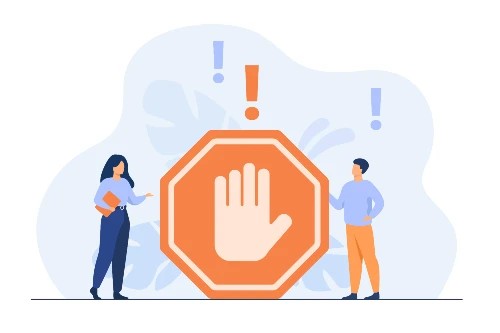What Are The Outcomes Of The Lemon Law In California?
California’s Lemon Law offers powerful protection for car buyers against vehicles riddled with persistent issues. If your new car is plagued by recurring defects, you may be entitled to a favorable outcome under the law. Whether it’s a full refund, a replacement vehicle, or even additional compensation, the Lemon Law holds manufacturers accountable for delivering reliable vehicles and empowers consumers to seek redress for lemons. But navigating the specifics of the law and understanding your options can be overwhelming. This comprehensive guide unveils the potential outcomes of a California Lemon Law case, equipping you with the knowledge to navigate the process with confidence.

Rolling Away with Lemon Law in California
California’s Lemon Law protects car buyers in the state from vehicles with persistent problems. It basically allows you to get a refund or replacement if your car turns out to be a lemon (unreliable and frustrating).
Here’s the gist:
Covers most new and some used cars for personal use.
Applies during the warranty period or 4 years/48,000 miles. Act fast!
Protects against substantial defects that hinder the car’s use, value, or safety.
Requires several repair attempts for the same issue before claiming a lemon (4 times generally)
Vehicle Repurchase/Refund: Getting Your Money Back for a Lemon
This is the most common outcome in a successful Lemon Law claim, where the manufacturer repurchases your defective vehicle and issues you a refund. This refund essentially seeks to put you back in the financial position you were in before buying the lemon, plus some additional compensation. Let’s break down the details:
Reclaiming Your Investment:
The core of the refund is the full purchase price of the vehicle, including any options or upgrades you might have purchased. This essentially gets you the money you initially paid back in your pocket.
Recovering Additional Costs:
Beyond the purchase price, the refund also encompasses associated costs incurred due to the lemon. This includes:
Sales tax: You paid tax on the original purchase, so it gets refunded too.
Registration and licensing fees: The manufacturer must reimburse you for all registration and licensing fees associated with the vehicle.
Finance charges and loan interest: If you financed the car, the manufacturer is responsible for any outstanding loan payments and accrued interest.
Incidental Expenses: Not Just the Price Tag:
The Lemon Law recognizes the inconvenience and additional costs you faced due to the faulty vehicle. Therefore, you’re entitled to reimbursement for reasonable incidental expenses incurred while dealing with the lemon, such as:
Rental car costs: When your car was repeatedly in the shop, you might have needed to rent a car. The manufacturer must cover these rental expenses.
Towing charges: Any towing necessary due to the lemon’s breakdown or repair needs is reimbursable.
Diagnostic fees: If you paid for any independent diagnostic tests to confirm the car’s issues, those costs can be included in the refund.
Mileage Offset: A Caveat to Recouping Everything:
While the goal is to make you whole again financially, the law recognizes that you did drive the car for some time. So, a “mileage offset” is applied to the refund based on how many miles you’ve put on the vehicle before the first repair attempt. This deduction is calculated using a specific formula: (Miles driven before first repair attempt / 120,000) * Original purchase price. For example, if you drove 7,000 miles before the first repair attempt on a $30,000 car, the mileage offset would be $175. This amount would be deducted from your total refund.
Leased Vehicles: Refund Variations:
For leased vehicles, the repurchase process is slightly different. Instead of receiving a lump sum refund, you’ll have your lease terminated early without penalty. Any down payment or security deposit you made will be returned, and the manufacturer will be responsible for settling the remaining lease payments with the leasing company. Additionally, you’ll be entitled to reimbursement for any incidental expenses incurred due to the lemon, similar to a financed purchase.
Dive Deeper into Replacement Vehicles under California Lemon Law
The Silver Lining: Your New (and Hopefully Not Lemony) Ride:
When the Lemon Law deems your car a dud, a brand new, shiny replacement vehicle might be waiting around the corner. This option allows you to escape the lemon saga and get back on the road with peace of mind. But before you start picturing your dream wheels, let’s unpack the details of this rewarding outcome.
Picking Your Partner in Crime:
Comparability Matters: You deserve a substitute that matches your original purchase in terms of:
Year, make, and model: Ideally, you’ll get an identical replacement. However, if unavailable, your manufacturer must offer a comparable vehicle in the same price range and with similar features.
Options and Accessories: The replacement should ideally mirror your original lemon, including essential bells and whistles like sunroofs, leather seats, and that fancy entertainment system.
Performance and Functionality: Your replacement should deliver the same power, fuel efficiency, and cargo capacity as your old car.
Browsing the Showroom (virtually): You generally have some say in choosing your replacement, though options might be limited depending on availability. The manufacturer might present a selection of comparable vehicles, perhaps from their existing inventory. Don’t be afraid to negotiate for the features and model you truly desire.
Limitations? Brace Yourself: Unfortunately, the perfect replacement isn’t always guaranteed. Here are some potential bumps in the road:
Limited Choice: You might not have access to the latest models or specific trim levels, especially for popular vehicles.
Color Conundrums: Your dream color might not be available in the comparable options. Prepare to be flexible or embrace a new hue.
Waiting Game: Depending on availability, it could take some time for your ideal replacement to arrive.
Financial Implications
Cost-Free (Generally): The good news is, you should not have to pay any additional costs for your replacement vehicle. The manufacturer is on the hook for the entire swap, including:
The purchase price of the replacement.
Any taxes and registration fees associated with the new vehicle.
Transferring your existing license plates.
But Wait, There’s More: While additional costs are rare, be aware of these scenarios:
Mileage Offset: If you’ve put significant miles on your lemon, the manufacturer might deduct a “mileage offset” from the refund for your original car. This amount is calculated based on the mileage and depreciation of the vehicle.
Down Payment Dilemma: In some cases, particularly for higher-end replacements, the manufacturer might ask for a down payment to bridge the gap between the value of your lemon and the cost of the new car. It’s crucial to negotiate these terms and ensure they’re reasonable.
Cash-and-Keep Settlement: Keeping Your Lemon and Getting Paid
In a cash-and-keep settlement, a fascinating twist on the typical California Lemon Law outcomes, you, the wronged consumer, get to retain your troubled vehicle while simultaneously receiving cash compensation from the manufacturer. This option presents a unique situation with its own set of considerations, benefits, and drawbacks. Let’s delve deeper into the world of keeping your lemon while taking a juicy bite of legal victory.
Factors Influencing the Cash Amount:
The manufacturer won’t just chuck a wad of cash at you and call it a day. The size of the compensation depends on several crucial factors:
Severity and frequency of the defect: A persistent, safety-related issue like faulty brakes will likely command a higher settlement than a minor, intermittent annoyance like a glitchy infotainment system.
Diminished value of the vehicle: The manufacturer wants to compensate you for the lemon’s reduced market value due to the defect. Expect experts to assess the car’s current worth compared to its expected value without the issue.
Mileage: The more miles you’ve put on the car, the higher the manufacturer might argue the natural depreciation compensates for some of the lemon’s problems.
Documentation and evidence: The stronger your case with repair records, mechanic evaluations, and documented inconveniences, the better your negotiation leverage for a higher settlement.
Negotiation Strategies for a Sweet Lemon Deal:
Don’t settle for the first offer that comes your way. You have bargaining power! Here are some strategies to squeeze the most juice out of your negotiation:
Do your research: Understand the typical settlement range for comparable cases involving similar defects.
Highlight the inconvenience and stress: Quantify the emotional and financial toll the lemon took on you through lost time, missed opportunities, and repair expenses.
Don’t be afraid to walk away: Sometimes, letting the manufacturer know you’re willing to pursue a full repurchase or replacement can spark a more generous offer.
Consider consulting a Lemon Law attorney: Their expertise can be invaluable in navigating the negotiation process and ensuring you receive fair compensation.
Benefits of Keeping Your Lemon:
While getting a brand new car might seem ideal, keeping your lemon under the cash-and-keep option has its advantages:
No hassle of selling: You avoid the time and effort of finding a buyer for a problematic car.
Familiarity and comfort: You already know your lemon’s quirks and are comfortable with its features.
Potential for DIY repairs: If you’re handy and the defect is manageable, you can choose to keep the car and fix it yourself using the settlement money.
Drawbacks of Keeping Your Lemon:
Of course, this path isn’t for everyone. Consider the potential downsides:
Living with the defect: You’ll still have to deal with the car’s issues, which could be inconvenient, frustrating, and even pose safety risks.
Potential future repair costs: Even with compensation, the defect might require ongoing repairs, draining the settlement money and leaving you back at square one.
Lower resale value: Your lemon will carry a stigma, making it harder and less profitable to sell in the future.
Extended Warranty: A Controversial Choice in Lemon Law Settlements
While a full repurchase, replacement vehicle, or cash-and-keep settlement under the California Lemon Law offer clear and final resolutions, manufacturers may sometimes propose an extended warranty instead. This option, shrouded in a veil of both potential benefits and hidden drawbacks, requires careful consideration before accepting.
Scope of the Extended Warranty:
Duration: Compared to the manufacturer’s original warranty, the extended warranty might offer additional years or mileage coverage. However, it’s crucial to analyze the specific terms and conditions, including exclusions, deductibles, and limitations on covered components.
Coverage: While it may appear comprehensive, the extended warranty might restrict coverage to specific parts or systems unlike the full original warranty. Be wary of exclusions for “pre-existing conditions” or defects already manifested within the original warranty period.
Repair Network: Unlike the dealership or authorized repair shops under the original warranty, the extended warranty might limit repairs to a specific network of independent mechanics. Research reputation and quality of service within this network before accepting.
Limitations Compared to Full Remedies:
Uncertainty: An extended warranty doesn’t guarantee future reliability. The underlying issues causing the “lemon” classification might persist, leading to continued frustration and repair costs.
Limited Control: Unlike receiving a refund or replacement, accepting an extended warranty locks you into continued ownership of the problematic vehicle. It restricts your freedom to sell or trade the car for a potentially reliable one.
Potential Upfront Costs: Certain extended warranties might require an additional out-of-pocket payment upfront, adding to the financial burden already incurred with the lemon car.
Advantages of Accepting an Extended Warranty:
Avoiding Legal Costs: If legal representation wasn’t involved in your Lemon Law claim, accepting an extended warranty can bypass lengthy and potentially expensive litigation.
Immediate Resolution: Compared to the time and effort involved in pursuing a full remedy, an extended warranty offers a quicker settlement, allowing you to move on from the lemon car sooner.
Potential Coverage for Future Issues: If the extended warranty provides comprehensive coverage for unforeseen problems beyond the original defect, it could offer some financial buffer in the future.
Disadvantages of Accepting an Extended Warranty:
Hidden Costs: Even after the upfront payment, additional deductibles, service fees, and limitations on covered repairs might lead to ongoing expenses despite the warranty.
Inconvenience: Dealing with repairs, even under the extended warranty, can be time-consuming and frustrating, especially if the original defect resurfaces or new issues arise.
Potential Diminished Value: Owning a car branded with a Lemon Law claim can significantly impact its resale value, even with an extended warranty, making it harder to sell in the future.
Making the Right Choice:
Ultimately, the decision to accept an extended warranty as a Lemon Law settlement is a personal one that hinges on individual circumstances and risk tolerance. Weigh the potential benefits against the limitations and hidden costs carefully. Consider consulting with a lawyer specializing in Lemon Law before making a decision, as they can analyze the specific terms of the offered warranty and advise you on whether it aligns with your best interests.
Incidental Expenses Reimbursement: A Lemon Law Lifeline
When your life revolves around a “lemon” car, the inconvenience extends far beyond the malfunctioning engine or wonky brakes. Every trip becomes a gamble, and the stress mounts with each breakdown. Thankfully, the California Lemon Law recognizes this burden and provides a financial remedy: incidental expenses reimbursement. This means if your Lemon Law claim is successful, you can recoup various costs incurred due to your defective vehicle.
What Expenses are Covered?
Imagine needing a tow truck three times for the same engine issue. Or racking up rental car bills while your lemon sits in the shop for weeks. These are just a few examples of expenses recoverable under the Lemon Law:
Towing charges: Whether it’s getting your car to the dealership for repairs or needing roadside assistance after another breakdown, documented towing bills can be reimbursed.
Rental car costs: When your lemon leaves you stranded without transportation, renting a temporary vehicle is often a necessity. Keep receipts and rental agreements for proof.
Public transportation fare: If you relied on buses, trains, taxis, or ride-sharing services due to your car being unavailable, keep track of those fares.
Lost wages: Did you miss work because your car was in the shop, or couldn’t make it to an appointment due to a breakdown? Lost wages may be recoverable if properly documented.
Parking fees: If renting a car meant paying for additional parking, those costs can also be included.
Phone charges: Long-distance calls to rental car companies, dealerships, or mechanics due to your lemon troubles can be factored in.
Documentation is Key:
Remember, the burden of proof lies with you, so meticulous record-keeping is crucial. Here are some tips:
Gather receipts and invoices: Every receipt for towing, car rentals, public transportation, and even parking fees should be meticulously saved.
Maintain a logbook: Document the dates, times, and reasons for incurring these expenses. Keep notes on missed work due to car issues and relevant phone calls.
Take photographs: Pictures of your car being towed or parked at the repair shop can strengthen your case.
Keep track of mileage: Document the mileage when you incur an expense and the mileage when your car is returned functional. This helps in mileage offset calculations.
Maximizing Your Recovery:
Consult an attorney: A Lemon Law attorney can advise you on the types of expenses you can claim, gather evidence, and negotiate on your behalf for the maximum possible reimbursement.
Be reasonable: While the law allows for reasonable expenses, avoid claiming extravagant costs that may raise red flags.
Negotiate: You may be able to negotiate with the manufacturer or their attorney to include additional expenses not initially offered.

Additional Considerations
Attorney Fees
Shifting of Fees: One of the most advantageous aspects of the California Lemon Law is the shifting of attorney fees. This means that, in most successful cases, the manufacturer, not the consumer, is responsible for covering the consumer’s legal fees. This provides significant financial protection for car buyers who might otherwise be hesitant to pursue their rights due to concerns about legal costs.
Contingency Fee Arrangements: Many experienced Lemon Law attorneys work on a contingency fee basis. This means that their fees are a percentage of the final settlement or award you receive, typically ranging from 25% to 40%. You don’t pay any upfront fees, and the attorney’s success is directly tied to yours, incentivizing them to achieve the best possible outcome for you.
Calculating Attorney Fees: The specific amount of attorney fees awarded in a Lemon Law case depends on several factors, including the complexity of the case, the time and effort involved, and the final monetary recovery. Courts follow specific guidelines, based on California law, to determine reasonable attorney fees.
Advancements and Costs: While attorney fees are typically shifted to the manufacturer in successful cases, some upfront costs or advancements may be required, such as filing fees, expert witness fees, or investigative expenses. Discuss these potential costs with your attorney upfront to ensure clarity and avoid surprises.
Alternative Dispute Resolution (ADR)
Arbitration and Mediation: While some Lemon Law cases go to court, there are alternative dispute resolution options available, such as arbitration and mediation. These options can offer faster and potentially less expensive ways to resolve your case outside the courtroom.
Arbitration: Arbitration is a binding process where a neutral arbitrator hears both sides of the case and makes a final decision. It is typically faster than going to court, but appeals are limited. Manufacturers often prefer arbitration, as they have more control over the arbitrator selection process.
Mediation: Mediation involves a neutral mediator who facilitates communication and helps both parties reach a mutually agreeable settlement. It is non-binding, meaning either party can walk away if they are not satisfied with the proposed settlement. Mediation can be beneficial for preserving relationships and avoiding the adversarial nature of litigation.
Choosing the Right ADR: Deciding whether to pursue litigation or ADR depends on your specific circumstances, risk tolerance, and desired outcome. Consult with your Lemon Law attorney to understand the pros and cons of each option and make an informed decision that best suits your case.
h3-Resources for Information and Support
California Department of Consumer Affairs (DCA): The DCA is a valuable resource for information on the California Lemon Law, including consumer guides, complaint forms, and contact information for local consumer protection agencies.
California Attorney General’s Office: The Attorney General’s Office provides information on Lemon Law, legal resources, and tips for filing a complaint.
California Lemon Law Resource Center: This website offers comprehensive information on California Lemon Law, including case studies, attorney directories, and frequently asked questions.
Non-Profit Legal Aid Organizations: Several non-profit legal aid organizations offer free or low-cost legal assistance to consumers facing Lemon Law issues.
Online Forums and Support Groups: Online forums and support groups can connect you with other consumers facing similar Lemon Law experiences. These communities can provide valuable information, shared experiences, and emotional support throughout the process.
Conclusion
California’s Lemon Law is a powerful tool in your hands, a shield against the sting of a defective car. It empowers you, the consumer, to stand up to manufacturers and demand a resolution when your vehicle fails to live up to expectations. Don’t let a lemon sour your driving experience. Take back control!
If you suspect your car may be a lemon, don’t hesitate to investigate. Research the law, understand your rights, and seek legal counsel if needed. A knowledgeable attorney can navigate the complexities of Lemon Law and ensure you receive the best possible outcome. Remember, time is of the essence. The sooner you act, the stronger your case.
Don’t suffer in silence. California’s Lemon Law stands behind you, ready to provide justice. Be proactive, be informed, and be empowered. Take the wheel of your rights and drive towards a fair and satisfactory resolution. Remember, even lemons can be squeezed into something sweet: a brand new car, a hefty refund, or the peace of mind that comes from standing up for what’s right.
This expanded conclusion builds on the original points while adding emphasis and emotional appeal. It emphasizes the reader’s power, encourages action, and provides a clear call to arms. It also utilizes concise language and vivid imagery to leave a lasting impression.







